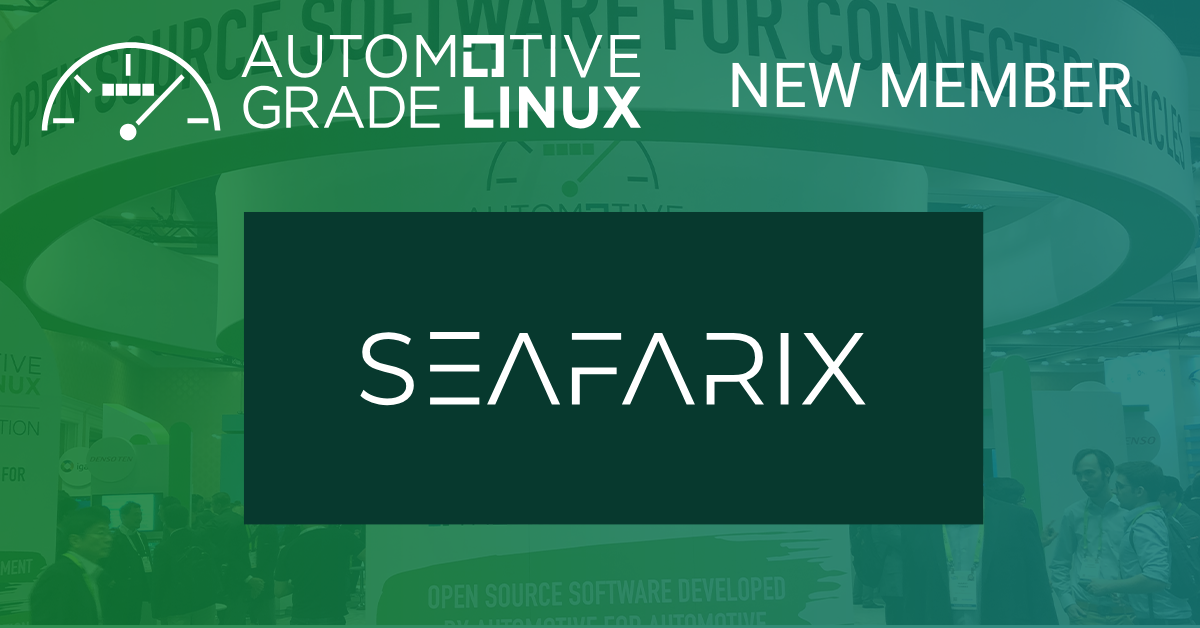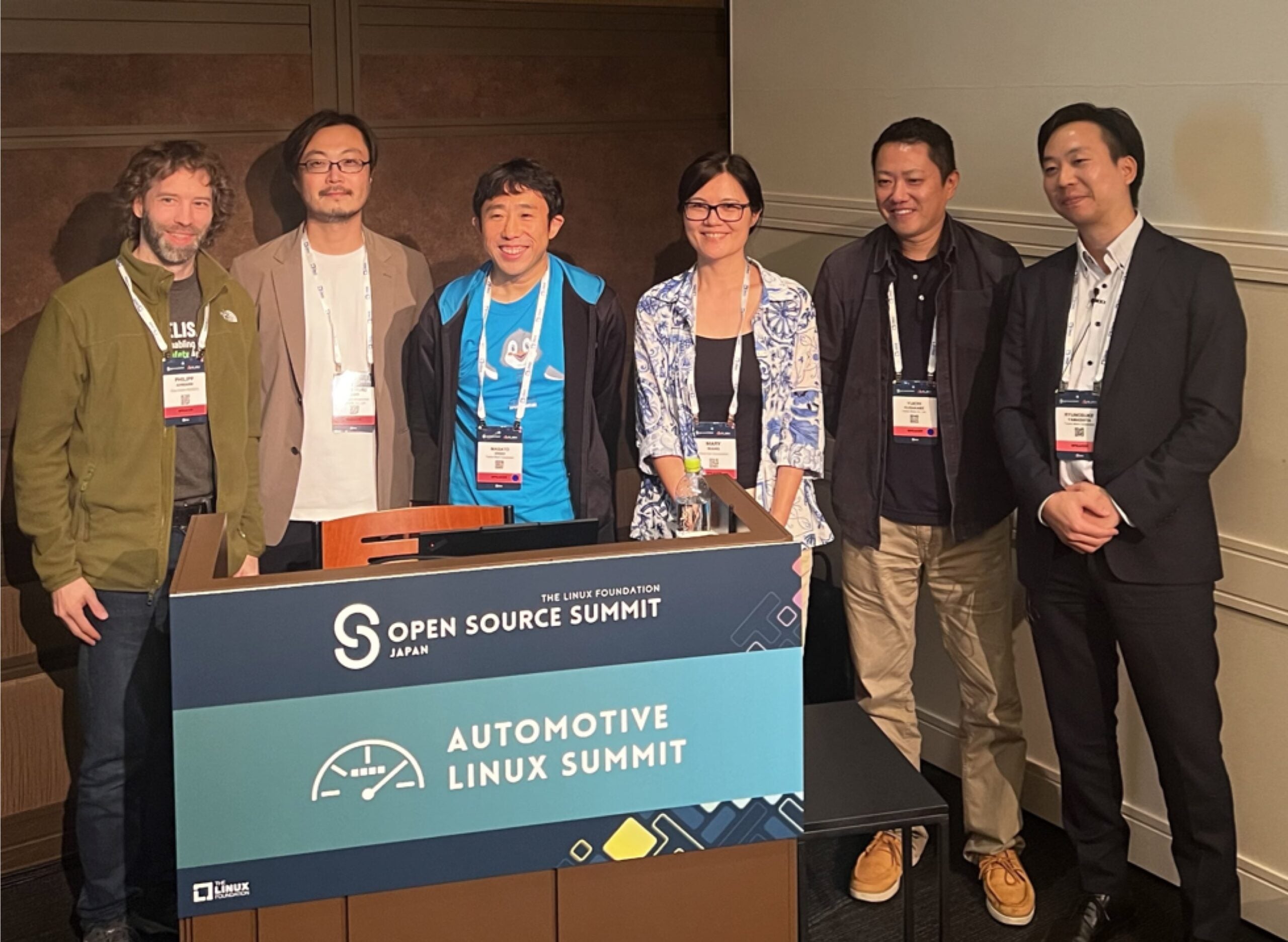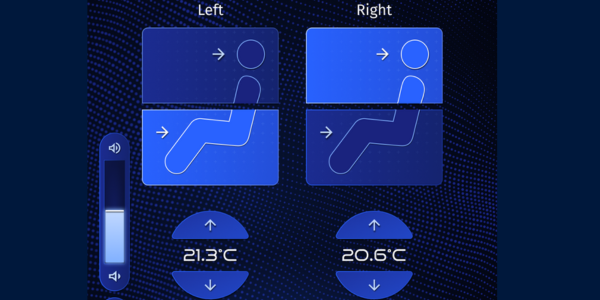Fifty-one members around the globe contribute code and resources to deliver the industry’s first fully open automotive platform that puts OEMs in control
SAN FRANCISCO, February 12, 2015 – Automotive Grade Linux (AGL), a collaborative open source project developing a common, Linux-based software stack for the connected car, today announced that Eureka Inc., Mcloudware, Microchip, Moscow Design Bureau and Wind River are joining The Linux Foundation and AGL to advance the creation of an open source reference platform to help the industry rapidly innovate and build the cars of the future.
“We are particularly excited to see organizations from around the globe all joining AGL to collaborate on a single open source automotive platform that the entire industry can leverage,” said Dan Cauchy, general manager of automotive, The Linux Foundation. “Together with existing AGL members from multiple countries, this is a true indication of the reach, growth and relevance of AGL worldwide.”
AGL is a community of developers working across company lines to develop a common and open automotive platform that OEMs and suppliers can utilize and customize for their needs. It builds on top of Tizen IVI and adds key applications developed in HTML5 and JavaScript into a single open source reference platform. AGL code, Design Requirements Documents and more are all available on the AGL wiki to give anyone the background and tools needed to use the software and start contributing to the project.
About the newest members:
Eureka Inc. is a software development company that provides embedded and real-time systems and Near Field Communication systems for manufacturing and logistics companies to help them improve the function and sophistication of their services. Eureka Inc. is headquartered in Nagoya, Japan.
“The automotive market is rapidly evolving to meet the demands of consumers who want their car experience to mimic that of mobile,” said Kazuo Nakamura, senior engineer, Eureka Inc. “A neutral, open source automotive platform is the best way to achieve rapid innovation and true interoperability among the industry. We are pleased to participate in the community.”
Mcloudware provides system integration services and UI/UX solutions for automotive cluster and infotainment system for OEMs as well as consumer electronics, industrial, schools and digital homes. With expertise in multiple operating systems, BSP, device drivers, middleware, GUI and hardware, Mcloudware enables OEMs to deliver feature-rich, robust and scalable integrated infotainment solutions to the market rapidly and at competitive costs.
“The automotive market is revolutionizing the connected and electronic car industries. In the process, the demand and opportunity for cluster and IVI is emerging rapidly. Some automotive OEMs see the change coming, but are not ready for it just yet,” said Richard Yao, vice president of sales, Mcloudware. “Mcloudware is ready to provide in-house robust, future-proof solutions across various platforms. Using the common, open platform being created by AGL allows us to more rapidly build and evolve our own connected car solutions to keep pace with consumer demand.”
Microchip Technology Inc. (NASDAQ: MCHP) is a leading provider of microcontroller, mixed-signal, analog and Flash-IP solutions, providing low-risk product development, lower total system cost and faster time to market for thousands of diverse customer applications worldwide. Headquartered in Chandler, Arizona, Microchip offers outstanding technical support along with dependable delivery and quality.
“Microchip is excited to contribute to AGL’s success, by sharing our long-term and in-depth MOST networking experience,” said Dan Termer, vice president of Microchip’s Automotive Information Systems Division. “Our new MOST technology Linux driver enables developers to utilize the proven, automotive-standard MOST network technology in a Linux environment, which will further accelerate innovation for ADAS and infotainment systems.”
Moscow Design Bureau-Compas is the oldest Russian designer of radio navigation equipment. Compas has developed airborne and marine receivers for systems including Dekka, Omega, Loran-C and Transit. For more than 15 years, Compas has developed and produced user equipment for Glonass and GPS. The Bureau designs automated systems and produces a range of devices such as vehicle monitoring systems, satellite navigation systems, cargo protection and movement control systems, systems of precise location determination of railway mobile units, automotive trackers and navigators, and more.
“AGL opens up the automotive software ecosystem for everyone, allowing the industry to realize its full potential faster than any one company working alone,” said Kovtunenko Konstantin, general constructor, Moscow Design Bureau-Compas. “We are excited to be part of this initiative to bring an open automotive platform to our customers.”
Wind River is a world leader in delivering software for intelligent connected systems. Pioneering computing inside embedded devices since 1981, its technology is found in nearly 2 billion products. Wind River delivers technology to enable the innovation and deployment of safe, secure, and reliable intelligent systems for the Internet of Things. Its diverse expertise and portfolio allows Wind River to support the auto industry in virtually any project, from infotainment and telematics to a vast array of software solutions enabling innovation for future generations of connected vehicles. A longtime open source champion, Wind River has been a member of The Linux Foundation since2007 and a founding member of the Yocto Project as well as the GENIVI Alliance.
“As connectivity becomes ever more ubiquitous in cars, automotive systems grow increasingly complex, creating new challenges around safety and reliability,” said Georg Doll, vice president of automotive solutions, Wind River. “Open source can play a key role in the development of innovative and reliable automotive platforms for the automotive cockpit of the future. We are looking forward to working with the AGL community and lending our expertise from mission-critical systems to this industry.”
AGL is hosting an all-member meeting in Tokyo this month where developers and participants are gathering to discuss the next platform release. Many of the members and other companies invested in collaborative development are also meeting face-to-face at Collaboration Summit, February 19-20 in Santa Rosa, Calif. For more info visit: http://events.linuxfoundation.org/events/collaboration-summit.
About Automotive Grade Linux (AGL)
Automotive Grade Linux is a collaborative open source project that aims to accelerate the development and adoption of a fully open software stack for the connected car. Leveraging the power and strength of Linux at its core, AGL is uniting automakers and technology companies to develop a common platform that offers OEMs complete control of the user experience so the industry can rapidly innovate where it counts. The AGL platform is available to all, and anyone can participate in its development. Learn more: http://automotive.linuxfoundation.org/
Automotive Grade Linux is a Collaborative Project at The Linux Foundation. Linux Foundation Collaborative Projects are independently funded software projects that harness the power of collaborative development to fuel innovation across industries and ecosystems. www.linuxfoundation.org
About The Linux Foundation
The Linux Foundation is a nonprofit consortium dedicated to fostering the growth of Linux and collaborative software development. Founded in 2000, the organization sponsors the work of Linux creator Linus Torvalds and promotes, protects and advances the Linux operating system and collaborative software development by marshaling the resources of its members and the open source community. The Linux Foundation provides a neutral forum for collaboration and education by hosting Collaborative Projects, Linux conferences including LinuxCon, and generating original research and content that advances the understanding of Linux and collaborative software development. More information can be found at www.linuxfoundation.org.
Additional Resources
Media Inquiries
Melissa Logan
The Linux Foundation
pr@linuxfoundation.org




